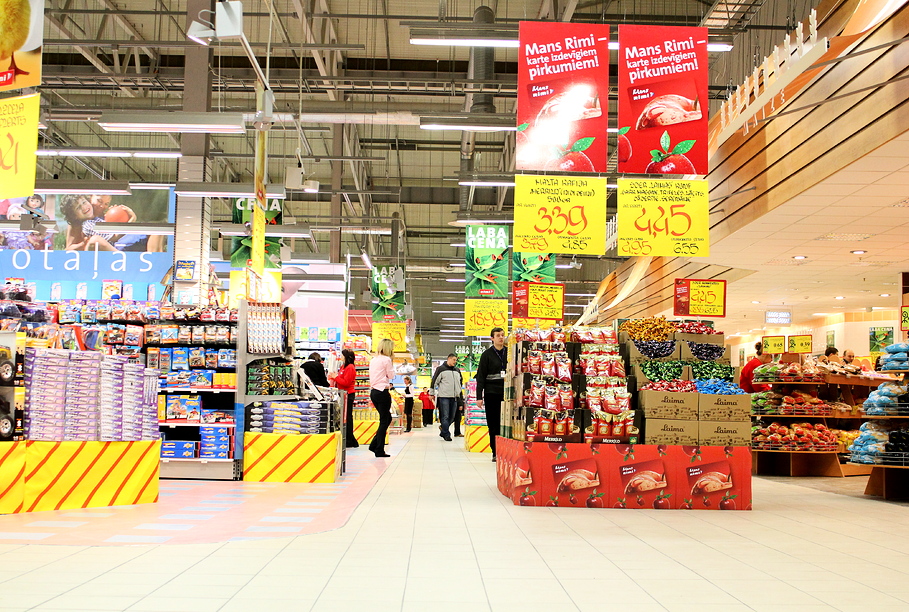"Of course not. It's not the first time and it is [..] very convenient to point to sellers - they're the bad ones! We are, of course, the ones who are placing that price tag. But clearly, the biggest causes of price changes are others: energy prices, the geopolitical situation, raw material prices, which have forced producers to change their product prices," Turlais said.
"We also regularly ask a lot of questions to suppliers and don't let prices rise so simply. In the end, if we raise prices, it is not to increase our profits, but because that is the situation. We get these prices from the supplier. What we do with our surcharges is seen in our profits," Turlais said.
Turlais stated that last year the company's profit was the smallest in five years - 2.7% of turnover, while on average the sector concerned should have a profit of around 5%.
Asked about the call made by the Minister for Agriculture, Didzis Šmits (AS) to reveal product pricing and supplier prices for retailers, Turlais said that the Competition Council (KP) is working in Latvia to assess and monitor market competition so that it is fair and does not carry out any prohibited action.
He said that KP is currently working on a study that will answer the broad questions about food prices, but that Rimi does not expect to see any new conclusions in this study. “I expect others to see something they have so far failed to understand or didn't know without being in this industry every day,” noted Turlais.
Commenting on the measurement of food price inflation by the Central Statistical Bureau (CSB), Turlais said that measuring inflation is not straightforward because the data of the CSB are collected for a particular food basket that does not change often. The data lacks a factor in changing consumer behavior.
“It is clear that the CSB cannot change the product basket every month to measure inflation, but it is also clear that it no longer reflects the real changes in consumption,” said Turlais, adding that the population's shopping basket has become smaller, fewer “premium” class goods are being purchased, and the migration of buyers has become more popular, looking for the best offer of the moment.
“If there is a good price offer, it really feels that all of Latvia is prepared to buy some goods in tons and build stocks,” Turlais added.
Rimi Latvia worked on a turnover of €1.028 billion last year, up 1.2% over a year earlier, while the company's profit fell 25.2% and was €27.49 million.
“Rimi Latvia” was registered in January 1992 and has a fixed capital of EUR five million. The sole owner of the company is Rimi Baltic, registered in Sweden.































